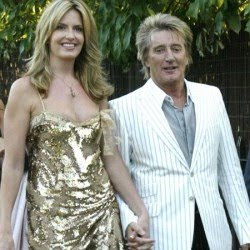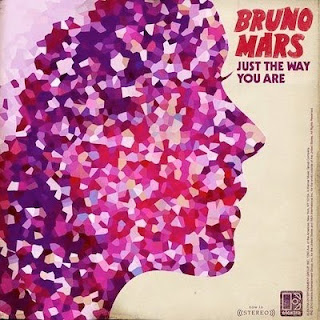At Hiroshima Ceremony, a First for a U.S. Envoy
 HIROSHIMA, Japan — With the mournful gong of a Buddhist temple bell and the release of a flock of doves, a crowd of 55,000 on Friday solemnly marked the moment 65 years ago when the world’s first atomic attack incinerated this city under a towering mushroom cloud.
HIROSHIMA, Japan — With the mournful gong of a Buddhist temple bell and the release of a flock of doves, a crowd of 55,000 on Friday solemnly marked the moment 65 years ago when the world’s first atomic attack incinerated this city under a towering mushroom cloud.For first time, a representative of the United States, Ambassador John V. Roos, participated in the annual ceremony, raising hopes here of a visit soon by a more prominent guest, President Obama, who is scheduled to be in Japan in November.
Mr. Obama has become a popular figure here since delivering a speech last year in Prague calling for the elimination of nuclear weapons. The mayor and other residents of Hiroshima have repeatedly invited him to come to their city, which — along with Nagasaki — is one of the world’s most recognized symbols of the horrors of nuclear war.
Until Friday, American officials had always skipped the annual ceremony, fearing their presence would renew the debate over whether the United States should apologize for the World War II bombings, which together killed more than 200,000 people in explosions so intense that many victims were vaporized, leaving only ghostly shadows on walls, while others died in agony from burns and radiation sickness.
Such a debate would probably be politically divisive in the United States and could even drive a wedge between America and Japan, one of Washington’s closest allies. American officials have long defended the bombings as having shortened the war and avoided an invasion, which they say would have cost untold thousands of American and Japanese lives. But many Japanese see the attacks as the epitome of the indiscriminate slaughter of modern warfare, and a principal reason for Japan’s postwar pacifism.
In interviews this week, political leaders here, including aging survivors of the bombing, sought to allay such concerns, saying they had no intention of asking the president to apologize. Instead, they said they would feel some measure of solace if a visit to their city could help Mr. Obama realize his vision of a denuclearized world.
“There is no point in apologizing now, after 65 years,” said Akihiro Takahashi, 79, the former head of the Hiroshima Peace Memorial Museum and a bombing survivor. “We want President Obama to see with his own eyes what really happened here. This will give him stronger willpower to eliminate nuclear weapons.”
Calls for Mr. Obama to visit Hiroshima and Nagasaki have spread in Japan not only since his Prague speech but also after he won the 2009 Nobel Peace Prize. Speculation has focused on his November visit, which will coincide with a gathering here of other Nobel Peace laureates.
During a visit to Washington in January, Mayor Tadatoshi Akiba of Hiroshima extended an invitation to Mr. Obama. In a speech on Friday at the ceremony, Mr. Akiba praised the president’s “powerful influence” in pushing for nuclear disarmament.
A new sense of hope that the world’s nuclear powers, and particularly the United States, may finally share a desire to rid the world of nuclear weapons seems to have permeated this city. In front of City Hall, a large sign proclaimed Hiroshima to be part of an “Obamajority.”
While some Japanese still consider the bombings a war crime, mainstream opinion appears to be more complex, largely out of recognition of Japan’s militaristic past. In interviews with more than two dozen Japanese who visited the Hiroshima Peace Memorial this week, only one said with any conviction that the United States should apologize.
Their views largely echoed the message of the memorial, which sidesteps the issue of responsibility and presents Hiroshima as a tragic warning to all against the use of nuclear weapons.
Younger Japanese said that while they were appalled by the museum’s graphic depictions of individual suffering, they did not view Hiroshima as an atrocity on the same moral level as the Holocaust, because the Japanese were not solely victims.
“Japan has its past, too, including Pearl Harbor,” said Akeo Fuji, 50. “This is not about hating the United States, but about hating nuclear war.”
Inatomi Takashi, 27, of Nagasaki, said, “We became prosperous because of America, so we don’t see America darkly.”
Historians say such sentiments are widely, if quietly, shared in Japan. They say the moral ambiguity is one reason for an almost total lack of hostility toward Americans in Hiroshima, a city of about 1.1 million in the shadow of forested mountains.
Yet, this is a city that remains intensely aware of its historical significance.
When it was being rebuilt, Hiroshima set aside a large portion of its former center as a peace park, including the Atomic Bomb Dome — the skeletal steel and concrete remains of an industrial exhibition hall that was left by the blast.
The dome served as an eerie backdrop for the ceremony on Friday. While Mr. Roos, the American ambassador, did not speak, he seemed to attract more attention than other guests, including the United Nations secretary general, Ban Ki-moon, who also attended for the first time.
Mr. Ban echoed the call for the elimination of nuclear weapons, saying it was time to move from “ground zero to global zero.”
“For many of you,” he said, “that day endures as vivid as the white light that seared the sky, as dark as the black rain that followed.”
In a statement, the United States Embassy said that Mr. Roos’s visit had reflected “a common goal of advancing President Obama’s vision of a world without nuclear weapons.”
Not everyone welcomed the ambassador. A few blocks from the ceremony, at an impromptu alternative memorial, leftist groups demanded an apology from the United States and the expulsion of its military bases in Japan. Still, many said they would appreciate a visit by Mr. Obama, even without an apology.
“I want President Obama to apologize,” said Tadashi Takahashi, 84, a survivor who became an antiwar advocate. “But even more, I want what he wants — a world without nuclear weapons.”
Experts here said that a healthy dialogue, instead of dividing the two nations, could bring them closer together. They said that many Japanese did not necessarily deny that the bombs had hastened the war’s end but that they felt that Americans did not appreciate the human cost.
“Japan and the United States are not so far apart,” said Kazumi Mizumoto, a professor at Hiroshima City University. “Maybe they should offer a joint apology of all the terrible things that happened in that war.”
source-http://www.nytimes.com



Comments
Post a Comment